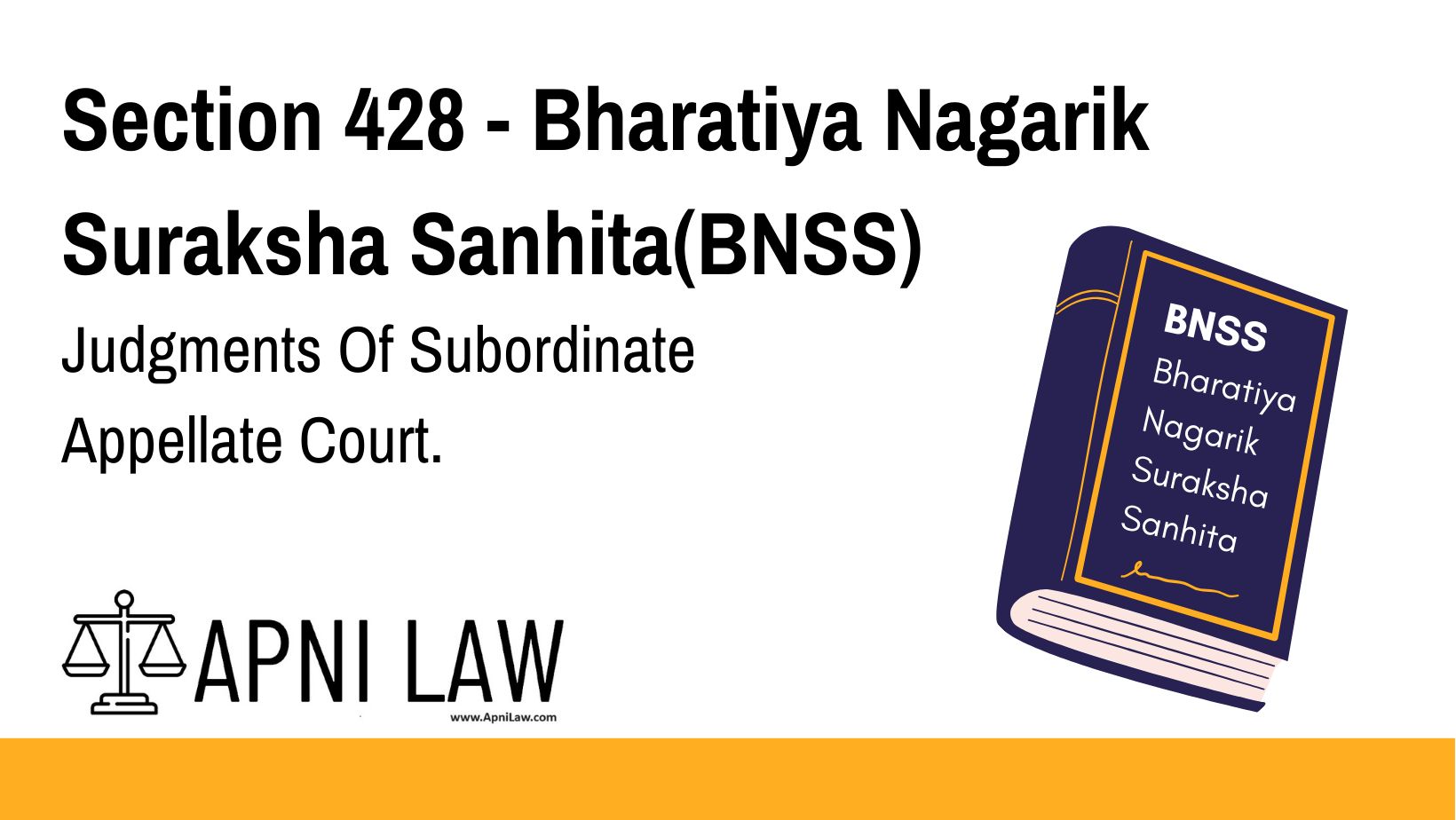Code: Section 428 BNSS
428. Judgment in Appeal
The rules contained in Chapter XXIX as to the judgment of a Criminal Court of original jurisdiction shall apply, so far as may be practicable, to the judgment in appeal of a Court of Session or Chief Judicial Magistrate:
Provided that, unless the Appellate Court otherwise directs, the accused shall not be
brought up, or required to attend, to hear judgment delivered.
Explanation of Section 428 BNSS
Section 428 of the Bharatiya Nagarik Suraksha Sanhita (BNSS) ensures that the rules applied to judgments in original jurisdiction criminal cases also extend to appeals heard by Courts of Session or Chief Judicial Magistrates. This brings uniformity and consistency in the judicial process across all stages of the legal proceedings.
Key Provisions:
- Applicability of Original Rules: The rules for delivering judgments in original jurisdiction criminal courts apply to appeals in appellate courts, ensuring that procedures remain consistent.
- Accused Attendance: The accused does not need to be physically present in the Appellate Court unless specifically directed by the Court.
Illustration of Section 428 BNSS
Example 1: Judgment in Appeal – Rules Application
In a case under appeal in a Court of Session, the same rules for judgment as applied in original jurisdiction criminal courts are followed, ensuring uniformity and consistency in judgment delivery procedures across all court levels.
Example 2: Non-requirement of Accused Attendance
The accused in an appeal case does not need to be present unless the Appellate Court issues a specific direction for attendance. This helps streamline the judicial process and minimizes unnecessary physical appearances.
Common Questions and Answers on Section 428 BNSS
1. Does the accused need to be present in the Appellate Court to hear the judgment?
- Answer: The accused does not need to be present unless the Appellate Court specifically directs them to attend for the delivery of the judgment.
2. How are judgments in appeal different from those in original jurisdiction?
- Answer: The same judgment rules applied to original jurisdiction criminal courts are also applicable in appeals, ensuring consistency in criminal case procedures.
3. What if the Appellate Court orders the accused to attend the judgment delivery?
- Answer: If the Appellate Court decides that the accused must attend, they will be required to be present during the judgment delivery.
4. Can the judgment procedure in appeal be different from the original jurisdiction?
- Answer: No, unless specifically directed by the Appellate Court, the rules for delivering judgment are the same as those followed in original jurisdiction courts.
Conclusion
Section 428 BNSS plays a crucial role in ensuring consistency and efficiency in the criminal justice process across both original jurisdiction and appellate proceedings. By adopting the same judgment rules as those in original jurisdiction, it promotes fairness and uniformity in the judicial system. Moreover, the provision that the accused is not required to attend unless specifically directed by the Appellate Court simplifies the judicial process and reduces unnecessary attendance, benefiting both the accused and the judicial system.
This section ensures that appeals are handled with the same procedural integrity as the original trial, allowing for smoother transitions through the court system, which is essential for upholding the right to a fair trial.








